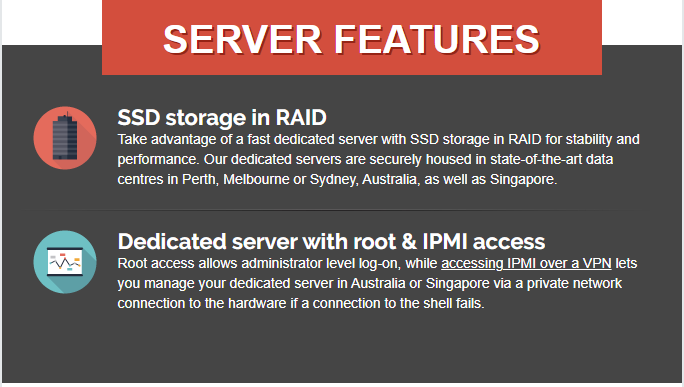Are you considering hosting your website on shared, VPS, or dedicated servers?
It might be difficult to decide which web hosting option best suits your needs because there are so many different types available. However, shared, VPS, and dedicated servers are the top three most popular options on the market. Still, they are all different solutions, each intended for a specific target audience. So, you can easily decide which one to get, especially if you understand the technologies better.
Let’s first review the definitions of shared, VPS, and dedicated hosting so that you may have a better understanding of each. Next, we’ll dive into the differences, and finally, we’ll sum up the reasons for choosing each.
What Is Shared Hosting?
Most people who create their first website use shared hosting because it’s the most beginner-friendly solution at the cheapest price. So, if you are looking for an entry-level service, you might as well consider a shared server.
When you purchase shared hosting, your website will be placed on a server alongside hundreds or even thousands of other websites. This implies that each client must share server space and resources, such as CPU time, memory, and disc space, with all other users. Since you share the resources, you’ll also share the costs, giving you a budget-friendly service.
Therefore, shared hosting can be compared to residing in an apartment building. In addition to living in the same building, all of the inhabitants also share services, including elevators, stairwells, and parking.
But unfortunately, the cheapest option usually comes with some strict limitations. For instance, your website speed can suffer, and you might also experience downtime.
At Zen Hosting, we offer cheap shared hosting plans with excellent value for money. For instance, you will get free cPanel included in each plan.
Pros and Cons of Shared Hosting
Here are the advantages and disadvantages of shared hosting.
Pros
- It comes at the cheapest price
- You won’t face any administrative issues
- It’s a beginner-friendly solution
Cons
- Lack of server control
- Higher security risks and performance issues due to other users
What Is Dedicated Hosting?
Dedicated hosting is when you possess the whole server. Additionally, you will not share resources like CPU time and memory because there are no other websites on your server.
For instance, imagine owning the entire apartment building and being able to do anything you want with it rather than just renting out one apartment in the building.
Using a dedicated server enables you to monitor malicious traffic and stop it, personalize your server configuration, choose the software you wish to use, update your server hardware as needed, and a lot more.
We also provide dedicated servers with expert server management and strong DDoS protection.
Pros and Cons of Dedicated Servers
Here are the advantages and disadvantages of using a dedicated server.
Pros
- You are the only user of the server
- It is fast because you get 100% access to server resources
- Great server performance and high security
- Completely customizable since you have full access to the settings
- It has a 24/7 customer support system
Cons
- Most expensive web hosting option
- It requires technical skills to optimize the server
What Is VPS Hosting?
A virtual private server (VPS) grants you the best of both worlds – the functionality of a dedicated server at a more affordable price. It divides the server into several virtualized server environments. So, while you share the server with other users, similar to a shared hosting plan, you get your server resources, as with a dedicated server.
In contrast to shared hosting, VPS often offers guaranteed minimum resources and extra resources available if your site encounters a traffic spike.
For example, you can compare VPS with residing in a condo. While you still live in the same building as the other inhabitants, it is your responsibility to maintain your home and make any necessary repairs inside your apartment. Furthermore, there are fewer inhabitants, and you get a designated parking space.
We have VPS hosting plans with an option to pick Linux VPS or Windows VPS.
Pros and Cons of VPS Hosting
Here are the advantages and disadvantages of VPS hosting.
Pros
- Excellent value for the money
- Highly scalable and customizable
- Better control due to the root server access
- Great speed because you have more resources
- Better security than shared servers
- Cheaper than dedicated servers
Cons
- More expensive than shared servers
- The setup process and maintenance requires technical expertise
Key Differences Between Shared, VPS, and Dedicated Hosting
Now that you know what each hosting type offers let’s see their differences compared across several categories. Fast forward, there’s no one size fits all. Instead, you’ll need to decide depending on your priorities and website needs.
Resource Allocation
Everybody needs certain resources. For instance, your mobile phone aplan has a predetermined call, message, and data limit. It’s similar to web hosting, except with storage and memory as resources.
As mentioned, with a shared hosting package, you’ll share all server resources, including CPU, RAM, and bandwidth, with other users. So what does this mean? Unfortunately, if one of the websites on the server utilizes more resources than expected, it will leave less for the remaining users. Consequently, you can expect lower speeds and worse performance.
On the other hand, VPS hosting is more flexible. You have greater resources since you control a higher portion of the server’s hardware. Additionally, you will have root access to the server environment, which will allow you to add new software or modify any existing file.
Lastly, you will have all server resources with a dedicated server to do as you please. Undoubtedly, dedicated servers offer the best performance. Yet, the question is, do you actually need them? If you can afford a dedicated server, go for it without hesitation. However, beware that these costs add up monthly, so always opt for a better value for money within your budget.
An important mention in this regard is the LVE Manager plugin for cPanel-based servers. It’s a type of dashboard for the CloudLinux OS that allows for dedicated resources. If, however, the server is running only cPanel, the resources are shared.
Performance
Even with all the resources and security in the world, your website’s performance matters most to your visitors. The amount of bandwidth you receive varies from plan to plan, and uptime differs according to the provider you select.
Shared hosting is perfect for you if you have a small site with few visitors. However, you should be aware of how performance will change if your site’s popularity suddenly rises.
VPS hosting performs better than shared hosting. In general, you receive greater bandwidth, and it can manage traffic spikes better. So, it’s proper for small- to medium-sized businesses or eCommerce sites.
Finally, a dedicated server is far superior to a VPS. Simply put, the website can function more efficiently, quickly, and with less downtime as you have more resources. And most importantly, other users cannot affect your performance since there are none within your environment.
Security
Entry-level shared plans imply the highest degree of security dangers. Fortunately, VPS hosting offers a greater degree of security than shared hosting, even though it involves sharing a server. This is because your website has a dedicated set of resources and a partitioned space on a server. Still, sharing server infrastructure does increase the possibility of security breaches from other websites. Even if this danger is not as great as with shared hosting, it is still higher than with a dedicated server.
Dedicated server hosting offers the best security since you have isolated server hardware and software. Therefore, you may implement your own security measures, like firewalls, anti-malware applications, and Distributed Denial of Service (DDoS) protection.
Scalability
Shared hosting is ideal if you run a small website that only receives a few hundred visits each week and if you don’t have any expansion plans.
However, VPS is the better option if you want to expand without worrying that your website will go offline.
At last, you probably won’t even have to scale with a dedicated server because you can already manage a lot of traffic. But even if you do, the provider will usually assist you with the quest.
Customization and Configuration
With shared hosting, you will receive a preconfigured environment without much space for changes. In contrast, VPS and dedicated servers offer managed and unmanaged plans with extensive customization possibilities.
With a managed solution, you don’t have to worry about setting up or configuring your hosting. Instead, you can focus on modifying your server to meet your own demands. For instance, you may choose your system specifications, select the perfect server software, and leave the work to a professional. Also, a VPS or a dedicated server offers you the option to install a custom OS. As a result, they are a great option for web designers that want a fully-controlled server for their client’s websites.
Unfortunately, this sophisticated programming won’t be possible with shared hosting.
To summarize, VPS-hosted websites offer greater freedom than shared but are less flexible than dedicated servers. A VPS enables you to modify the software components, not the hardware itself.
Pricing
Now that the technical aspects are out of the way, we can focus on the critical element. How much will this all cost? Depending on the plan you select, the cost of web hosting might significantly change. Usually, the more expensive the package you choose, the more features you receive. However, there are always exceptions to the rule.
The first thing to note is that there are many price categories for both shared and VPS hosting. Even though they are both affordable, VPS usually costs more than a shared plan.
On the other hand, the prices for dedicated hosting are substantially higher because it comes with a complete personal server. Therefore, it can be a good choice for bigger websites that need better performance, control, and versatility.
VPS hosting is more affordable than dedicated servers. Nevertheless, if you decide to upgrade your VPS package, the cost will soon match that of a dedicated server.
Which Web Hosting Solution Is The Best For You?
When picking between shared, VPS, or dedicated hosting, ensure you choose a solution that can satisfy your current and future requirements. We have outlined some of the benefits and drawbacks of each of the three primary web hosting options and offered outlooks for each.
Consider the following reasons when choosing your hosting.
Reasons to choose shared hosting:
- If you have a limited budget
- You own a small website or a personal blog
- Your site has limited traffic, and you don’t anticipate any growth
Reasons to choose VPS hosting:
- You require high-quality service yet are on a tight budget
- If you want dedicated resources and better control over your hosting
Reasons to choose dedicated hosting:
- You operate a business website or platform with high traffic
- If you require the safest hosting because you deal with sensitive information
- You have a big platform with many videos and high-quality pictures
Conclusion
The bottom line is that shared hosting can’t offer the performance, safety, and storage you require to manage a crowded website. Therefore, it works well for small websites with little traffic, such as blogs and personal sites.
Next, a VPS can be the best option if shared hosting is too basic for your requirements. Additionally, it can provide you with dedicated resources and greater control over your hosting environment.
Lastly, given the high cost of dedicated hosting, it is most appropriate for big corporations and high-traffic websites with more than 500,000 visits per month. Also, it is a great choice if your company needs a high level of protection.




